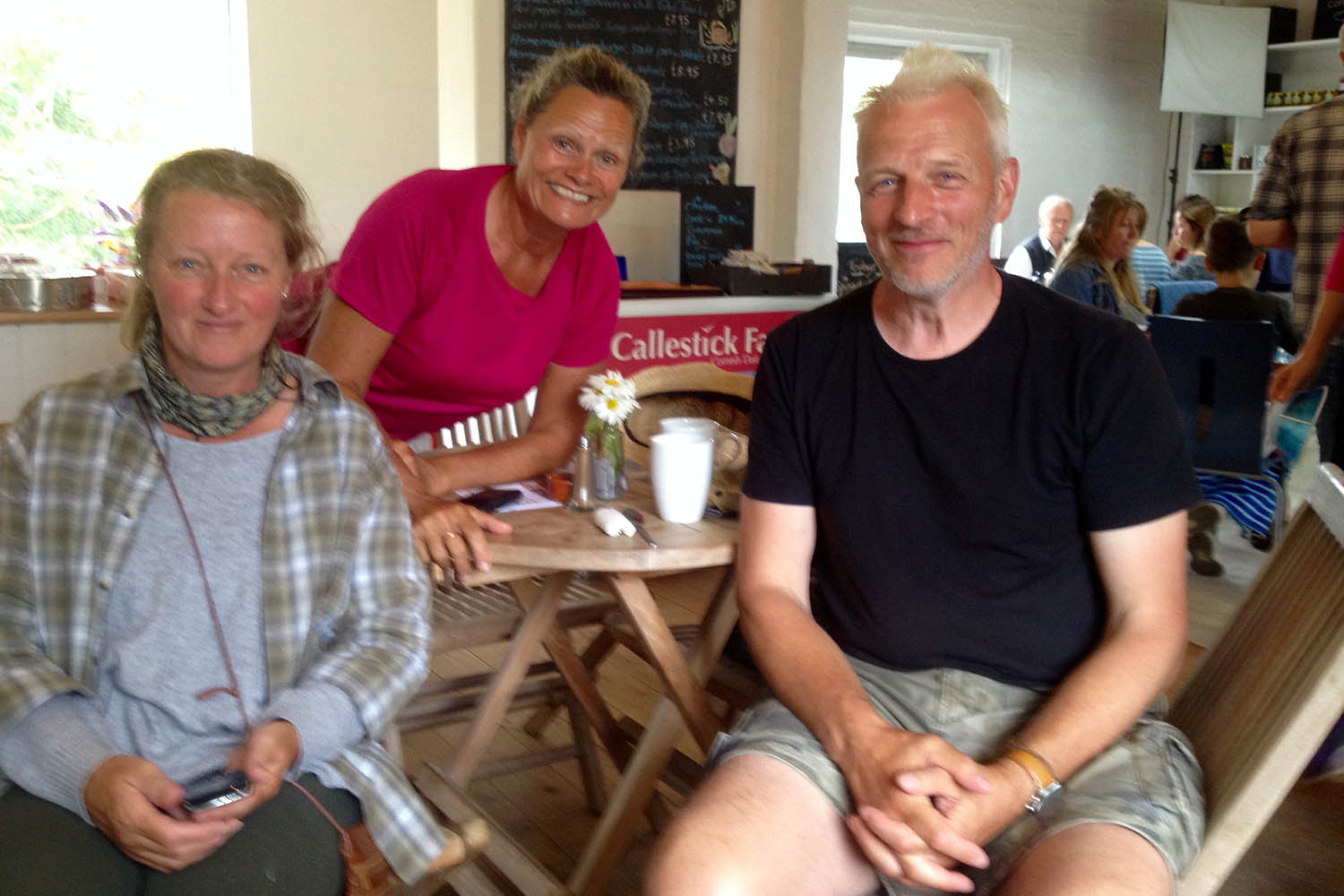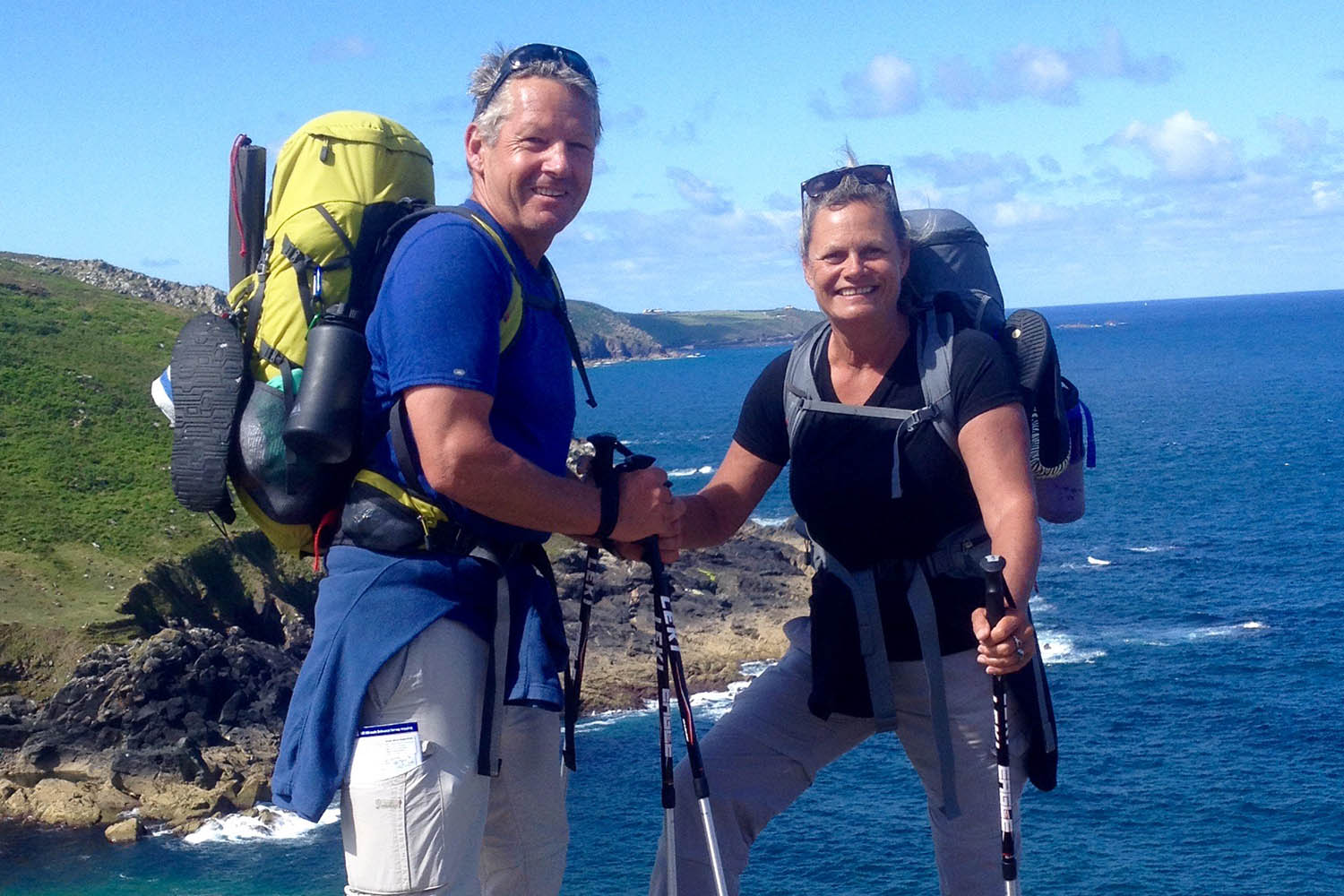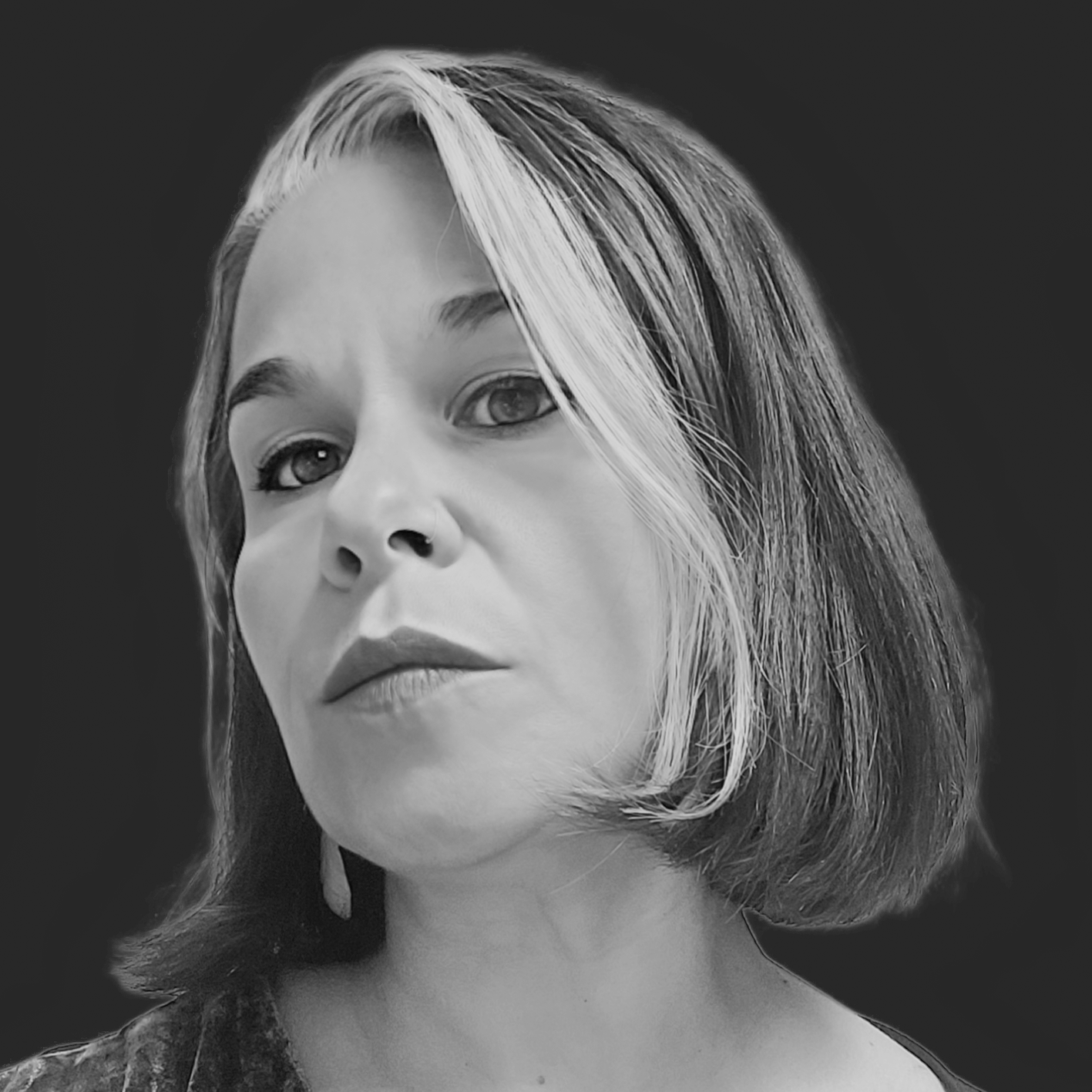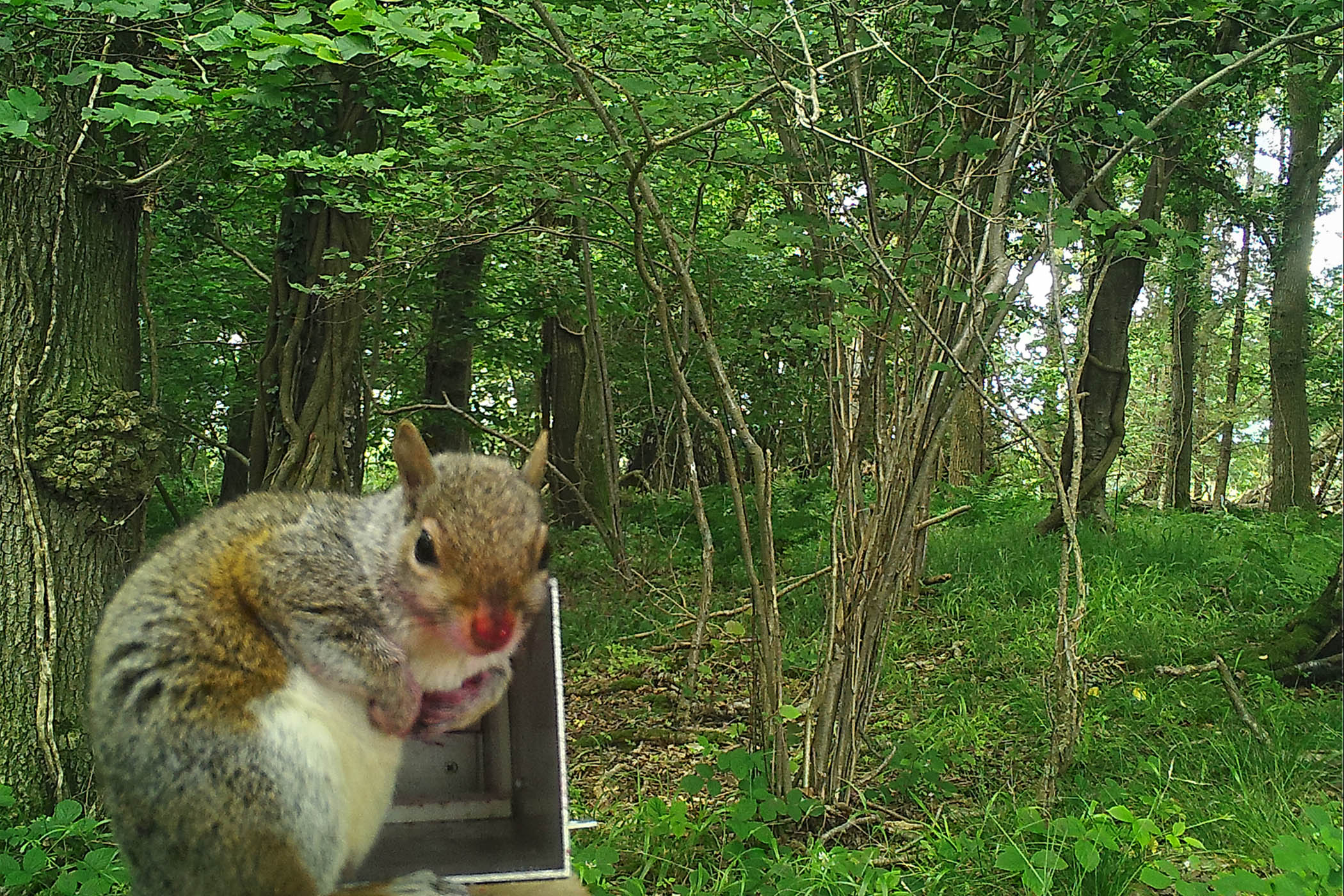Joanne and David Parsons spent only an hour or so chatting to two other hikers they met in a cafe on the South West Coast Path, but they made a lasting impression. “We walked into a cafe to have breakfast, and when we saw them it was obvious they were walkers as well,” David recalls. “They were loaded down with [camping] stuff and using their own teabags, but they didn’t say they were homeless.”
They learned later that the couple they had spent a jovial hour with in the Fat Apples Cafe, near Porthallow in Cornwall, were Raynor Winn and her husband, Moth, after Winn subsequently wrote a bestselling memoir about the walk, The Salt Path.
From reading the memoir, the Parsons realised their encounter in the cafe was mentioned in the book, when Winn describes meeting an unnamed Australian couple. Only something important didn’t add up: the dates.
‘Why did you give yourselves false names? Did you reinvent yourselves while on the path?’
‘Why did you give yourselves false names? Did you reinvent yourselves while on the path?’
Joanne Parsons in a 2018 email to Raynor Winn
In The Salt Path, Winn describes walking the 630-mile route in 2013, soon after the couple became homeless and Moth received a terminal diagnosis. But the Parsons, who are from Australia and had updated their blog regularly with details about their walk, knew that their encounter with Winn and Moth had happened two years later, in 2015.
The Salt Path was marketed as an “unflinchingly honest” true story, but an investigation by The Observer has found the author wasn’t honest about the circumstances under which the couple became homeless. The investigation also raised questions about the representation of her husband’s neurological condition and its severity.
The Parsons’ account is the latest in a series of discrepancies reported by The Observer that raises questions about whether Winn and Moth walked the coast path as described in the book or in fact walked it in sections over several years. Since publication of the investigation, numerous people who encountered Winn and Moth during their walk have claimed the author misrepresented their encounters or painted them in an unflattering light.
Just like Winn and her husband, the Parsons say they walked the entire South West Coast Path, camping along the way. They catalogued their journey in their blog, which is still available online. It shows that, on Saturday 8 August 2015, the Parsons stopped in a cafe, where they met a husband and wife who introduced themselves as Sally and Tim – Winn and Moth’s legal names. The Parsons’ blog describes them as “a lovely couple who had a very sad story to tell. We think we inspired each other.”
But years later, when the Parsons read about themselves in The Salt Path, they saw they had been portrayed as well-off people who didn’t want to camp once the weather had deteriorated. Winn also recounted how Joanne talked about wanting to get her roots done at the hairdresser’s.
Related articles:
Joanne says they were disappointed that their story – the real reason the two couples had connected – wasn’t mentioned in the book. David was a bricklayer living south of Perth in Western Australia when a back injury left him unable to work. The couple soon found they couldn’t make their mortgage payments. “It was a nice house on a canal with a massive mortgage and we were forced to sell,” David says.

They eventually had to move to a motorhome in 2013, and have been living in a caravan ever since. “ We house-sit and dog-sit, so we get out of the caravan now and again,” Joanne says.
The Parsons told Winn and Moth they were walking the coastal path in honour of David’s close friend, who was dying of leukaemia. “That’s when [Moth] started to open up about his illness,” David says. Moth told the Parsons that he had a neurological condition that left him with stiff legs.
“We had a very good encounter with them. And that’s why all this is quite disappointing,” says Joanne.
Soon after they read The Salt Path, Joanne wrote an email to Winn in 2018: “When we saw the picture of you both in the article, we kept looking at each other saying, ‘That’s Sally & Tim!’ But it can’t be as you would have told us you were homeless and you said you were walking the other way! [ie in the opposite direction to the one they actually walked].
“And why did you give yourselves false names? Or did you reinvent yourselves while on the path? Would love to know.” Joanne also asked about how Moth was dealing with his illness and questioned Winn about the claim she made that the Parsons had given up camping, choosing only to stay in hotels, and had given their tent away to a charity shop.
“[We] do not know where the bit about ditching the tent at a charity shop came from,” Joanne wrote. “We worked out we were happier wild camping and only went to B&Bs when the weather was really bad.”
Winn wrote back a few days later to clarify the discrepancy in the dates. She said she and Moth had walked the coast path in 2013, as she claimed in The Salt Path, but walked part of the coast again in 2015. “That’s when we met you,” she says in her email to Joanne. Winn then admitted she had presented the meeting as having happened in 2013. “We didn’t explain any of that [in the book], as it all just seemed too complicated,” she said. Winn also apologised for misremembering the details about the tent.
It casts doubt on Winn’s account in her second book, The Wild Silence, which says the couple were living in the small Cornish town of Polruan in 2015. There is no mention of them camping on the coast path that year.
Newsletters
Choose the newsletters you want to receive
View more
For information about how The Observer protects your data, read our Privacy Policy
Social media accounts belonging to Winn and her family suggest further discrepancies with accounts given in the books. A dated photograph on a blog shows Winn and Moth at Land’s End on 15 September 2013. But a post to a Facebook account under the name of Tristan Walker, Winn and Moth’s adult son, says that, two days later, he gave his parents a lift to Bristol. According to The Salt Path, they were walking the coast path, camping and surviving on £48 a week throughout September. Walker’s account also features a post saying that, in February 2015, he helped his parents move and complained about how much stuff they had. In The Wild Silence, Winn says the couple lived in the same flat in Polruan between 2014 and 2018.
In her third book, Landlines, Winn claims the couple used proceeds from the sale of The Salt Path – which was published in early 2018 – to fund a walking holiday in Iceland later that year, the impression being that it was their first time in the country. But photos on her Instagram account show the couple was in Iceland in early 2017, a year before the first book was published.
Raynor Winn did not respond to requests for clarification about these inconsistencies. In a previous statement, she has said: “The Salt Path lays bare the physical and spiritual journey Moth and I shared, an experience that transformed us completely and altered the course of our lives. This is the true story of our journey.”
Additional reporting by James Urquhart



